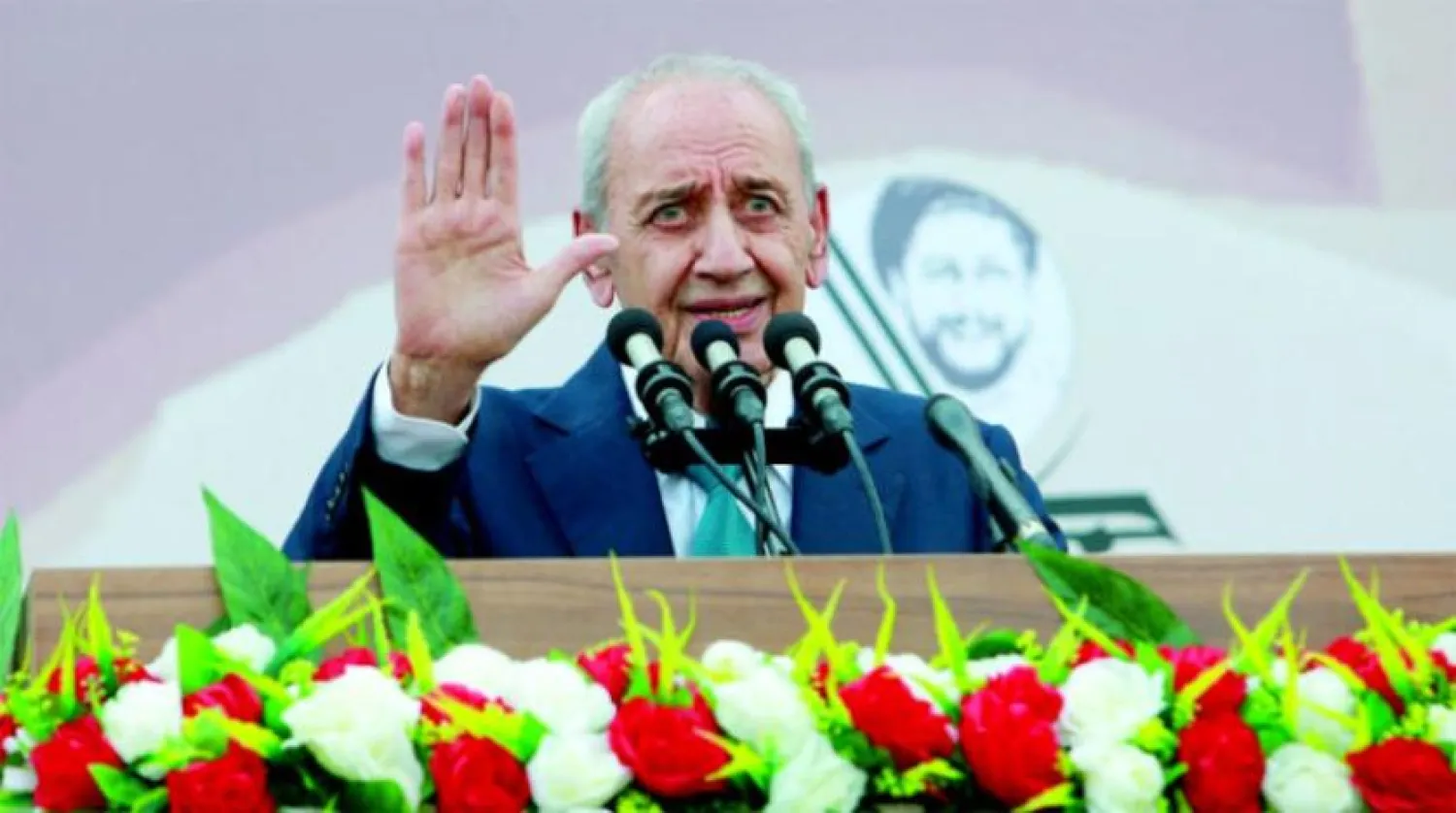Lebanese Speaker Nabih Berri affirmed that the country is ready now "but not forever” to go into indirect negotiations with Israel under US mediation to demarcate the maritime borders.
"The ball now is in the US court, and we're not advocates of war, but if our sovereignty gets threatened, we will defend these rights and borders," the Speaker said in remarks on Wednesday.
Berri accused the US mediator (Amos Hochstein) of wasting time, saying he has been absent for a month. Berri warned against procrastination and the usurpation of Lebanon's rights.
Lebanon's "border and sovereignty are like our honor, we do not negotiate over them, and we will defend them with all our capabilities," the Speaker stressed.
Berri was speaking at the 44th anniversary of the disappearance of Amal movement founder Moussa Sadr.
On Lebanon’s upcoming presidential elections, Berri said that his parliamentary bloc "will vote for a figure who would gather and unite rather than divide."
The term of President Michel Aoun ends on October 31.
Berri asserted that the next president should "believe in nationalist and patriotic principles and deeply believe that Israel represents a threat to Lebanon's existence."
"Let no one claim to be more sovereign than us," Berri said.
Regarding the presidential elections, Berri described as “unacceptable” any attempts to manipulate the constitution to meet the personal ambitions of any candidate. He said it is illegitimate to surrender to some malicious wills that are seeking to plunge the country into a vacuum.
Berri touched on internal issues and lashed out at the Free Patriotic Movement in the presence of outgoing Energy Minister Walid Fayyad. He criticized the power outages and the failure to appoint the authority that regulates the sector.
"Is it rational for Lebanon to be deprived of Jordanian and Egyptian gas due to failures to form a regulatory commission at the Energy Ministry, which has drained a third of the state's finances, under the excuse of 'changing the law instead of implementing it?'" Berri asked.
He warned that Lebanon is going through the worst and most dangerous phase in its history, and some approach it with the worst mentality of “maliciousness and wrath."
The Speaker renewed his accusation of the former Libyan regime being responsible for kidnapping Moussa Sadr, saying the kidnapping crime was carried out by the former Libyan government and that Sadr and his companions did not leave for Italy, according to the findings of the panel probing the case.
The failure of the current Libyan authorities to cooperate with the Lebanese authorities is considered to be "collusion," according to Berri.









